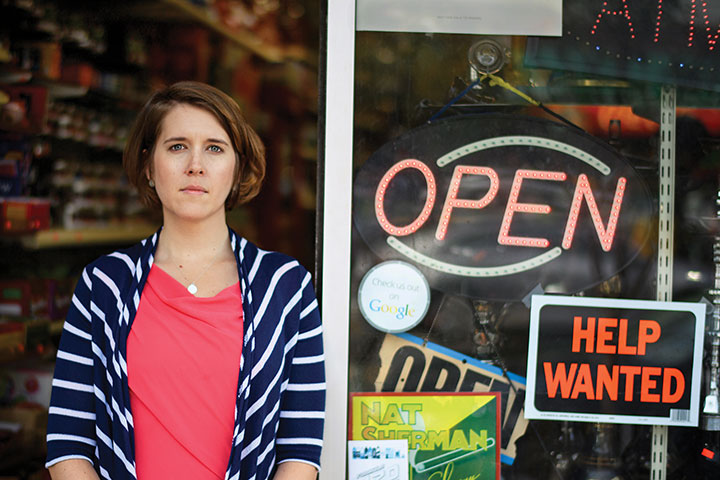Economics: Study Finds Employer Bias Increased After ‘Ban-the-Box’
Proponents argue that these so-called “ban-the-box” laws will ease prisoner re-entry into society and reduce unemployment among people with criminal records. The idea was “easy to back,” says Amanda Agan, who recently concluded a three-year postdoctoral fellowship in Princeton’s economics department. Legislation “was getting bipartisan support in a lot of places.”
But recently published research Agan conducted with Sonja Starr, a law professor at the University of Michigan, found that ban-the-box laws — named for the criminal-history check-box included on some application forms — have an unintended consequence: They make it less likely that black job applicants will get called for interviews.
With the help of dozens of student assistants, Agan and Starr submitted some 15,000 fake online applications for entry-level jobs in New York City and New Jersey, both before and after ban-the-box laws went into effect in 2015. The fake applicants were all young men with no college education, some with criminal histories and some without. And the profiles were given first names and surnames that government records show are strongly associated with one race or the other.
Before ban-the-box went into effect, white applicants got 7 percent more callbacks than black applicants. After the law, the racial gap grew to 45 percent. Agan and Starr attribute the effect to a phenomenon economists call “statistical discrimination”: Lacking information about individuals, employers rely on assumptions about the demographic groups to which applicants belong.
“Employers seem to be using race as a proxy for whether somebody has a criminal record,” says Agan, who recently joined the economics department at Rutgers University in New Brunswick. “To the extent that you’re hoping that this would reduce racial inequality in employment, it seems to be doing exactly the opposite.”
Agan admits that she and Starr have mixed feelings about their data — excitement as scholars, but regret as citizens. “We were sad for the world that these were the results,” Agan says. “We wish that we weren’t finding this.”












No responses yet